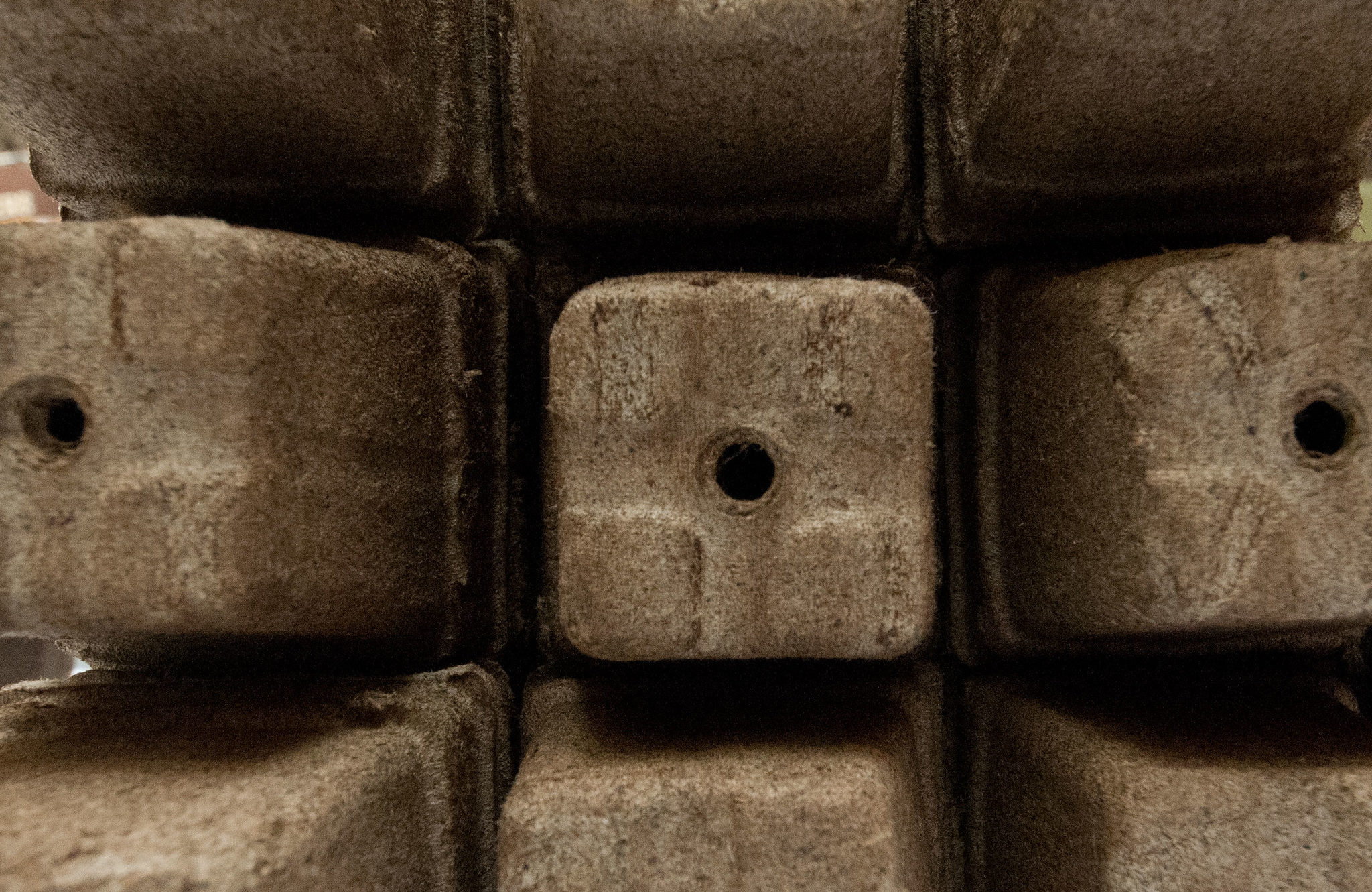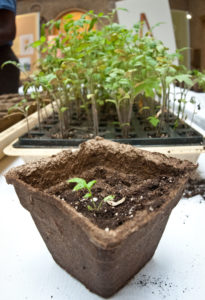
May 6, 2020
Why fiber growing containers are a viable solution
A poll conducted last year by the Yale Program on Climate Change Communication revealed that 62% of Americans now believe that, “global warming is caused mostly by human activities.” That number represents a 15% increase from just five years earlier.
While it’s easy to dismiss the results above as nothing more than hearsay, in an April 2019 article posted on USAToday.com – just in time for Earth Day – a new study released this February concluded there’s a 99% chance that humans have in fact caused global warming. Those are some difficult odds to dispute even for those climate-change cynics who believe the theory to be nothing more than a scientific hoax.
As the subject of climate change continues to permeate throughout conversations in The White House and in your own house, possible solutions to help reverse the harmful effects are plentiful from reducing emissions to planting more trees just to name a few. Two popular solutions you often hear echoed over and over again, with little understanding of how they directly relate to climate change, are supporting organic farming and purchasing sustainable products whenever available.
While there are many benefits to both humanity and the environment in practicing farming techniques without the use of harmful pesticides, good organic practices can both reduce fossil fuel use and provide carbon sequestration in the soil by increasing what is known as soil organic carbon (SOC) – which increases plant fertility and helps crops endure extreme weather conditions. It’s more than a “food fad” as many naysayers often brand organic farming – as repeated studies continue to support their positive influence on global warming.
If you Googled the term “sustainable products,” you’d be given a litany of definitions from those respected in the scientific community to community bloggers – all believing their example best defines the notion. But in truth, Wikipedia provides the clearest, most digestible definition for those unfamiliar with the practice. “Sustainable products are those products that provide environmental, social and economic benefits while protecting public health and environment over their whole life cycle, from the extraction of raw materials until the final disposal.”
In a recent Nielsen Company survey, conducted in October of 2018, 81% of global consumers said it was extremely important or very important for companies to roll-out initiatives to improve the environment.
Moreover, 73% of respondents said they would change their own consumption habits in order to improve the environment – with 38% saying they would even pay higher-than-average prices for products that are produced with sustainable materials.
If you’re not yet convinced that consumers are ready to do their part to help the environment, while engaging with businesses who are responsible and sustainable – especially among millennials and the generation after – I suggest you re-read the Nielsen statistics above.
It’s important to remember, and certainly worth repeating, that consumers vote with their wallets. Today, consumers are increasingly more educated, sophisticated and demanding when it comes to their hard-earned money and how it’s being spent on necessities that don’t fulfill their wants and desires.
It’s no longer enough to simply provide one option to consumers and assume they’ll be satisfied and brand-loyal enough not to stray elsewhere. And don’t assume we’re only talking about food when it comes to organics and sustainability. Today’s consumers are demanding more options in such business segments as cosmetics, body care products, textiles, pet food, restaurants and even plants and gardening supplies.
For the grower, this is an opportunity to bring your plants full circle under the scrutiny of consumers by utilizing and marketing a series of sustainable fiber planting containers that are also certified for organic farming. This provides those individuals who are predominantly more environmentally conscious with choices, thus securing them as a customer rather than surrendering them to the competition who already has such environmental options in their arsenal.

Organic herbs and vegetables such as mint and basil or peas and tomatoes are planted in an environmentally friendly container for sale to the consumer. Many often breathe like a clay pot would, but instead of extracting water from the plant-based on their composition, these sustainable fiber planting containers help retain water creating an optimal environment for root system development.
But perhaps best of all, when the consumer arrives home and ready to plant their new purchases in free-standing gardens, patio containers or deck-rail boxes, the entire sustainable container can be planted directly into the ground. Overall, you’ve limited the waste heading out to landfills and saved the consumer time, while satisfying their need to feel as though they’ve just done something good for the environment.
But be aware that NOT all sustainable fiber planting containers are created equal. Here are some things to look for before making a purchase for your growing facility.
- Are they certified for organic farming by a legitimate governing body? And don’t be afraid to ask to see the official documentation. If they’re unwilling to show you, they probably aren’t.
- How are they produced? Some “environmentally friendly” containers actually expose more harmful toxins into the environment during production than some traditional plastic containers. If they say they’re produced in a water recycling facility thereby eliminating wastewater discharge, that’s a good sign.
- What materials are the containers made out of? There’s a science behind making a sustainable fiber container for strength and durability. While they might all look the same on the outside, some companies add hardening agents (that are not biodegradable) in order to achieve that strength. Look for products that are molded using recycled newspaper, a plant-based binding agent and water. That’s it!
Francois Hollande, the President of the French Republic once remarked, “The time is past when humankind thought it could selfishly draw on exhaustible resources. We know now that the world is not a commodity.”
Today’s consumers worldwide are demanding more organic and sustainable solutions beyond just in the foods they eat. When they put a plant in the ground, they want to know that they’re making a difference – no matter how great or how small – it all has an impact.
Sustainable fiber planting containers are the full circle solutions for growers and gardeners. Do your homework before making a purchase and you’ll be doing your part to help battle global warming.






